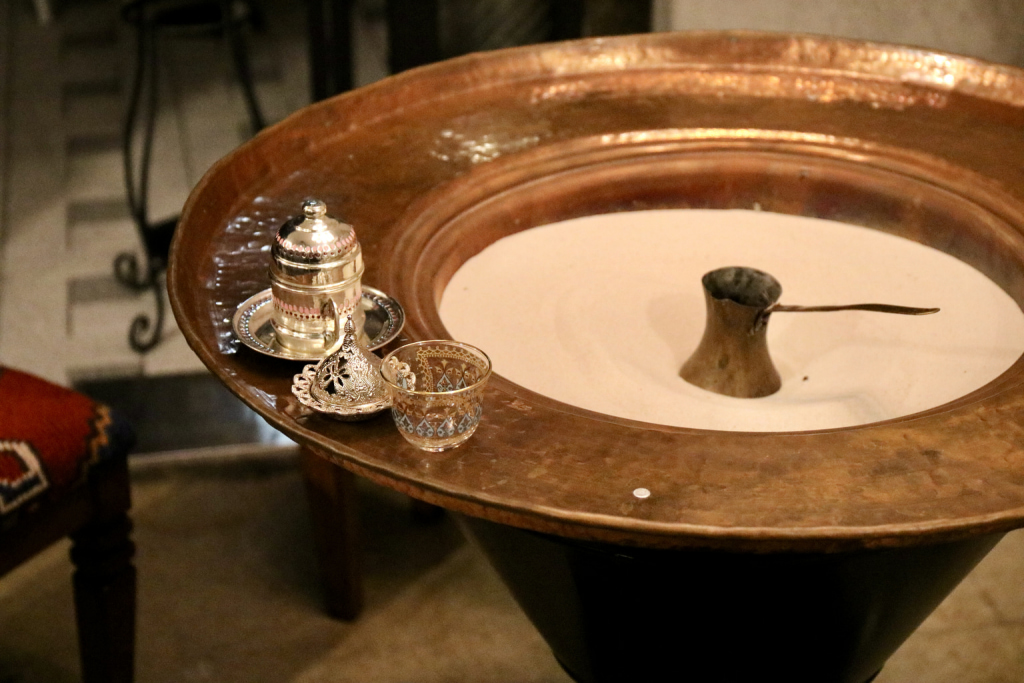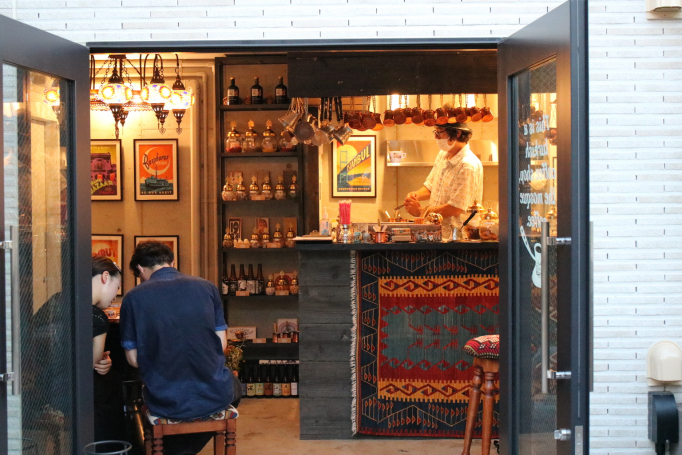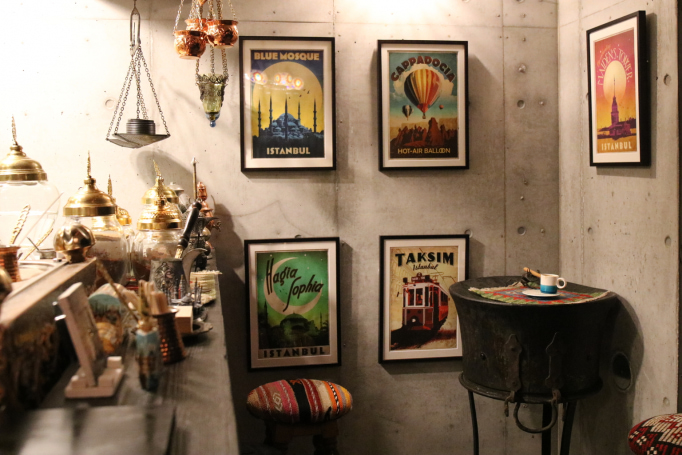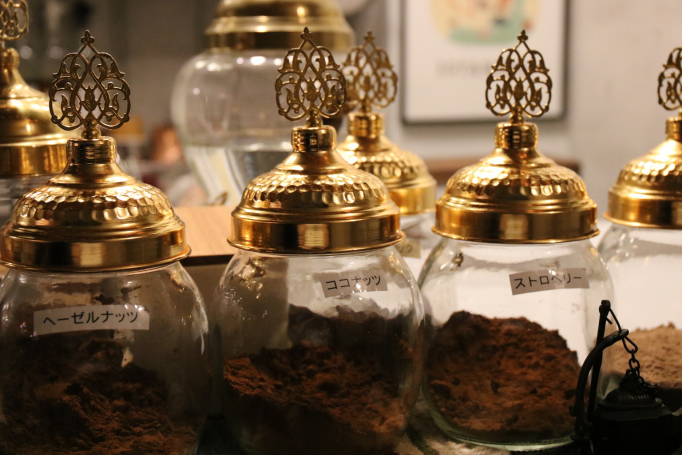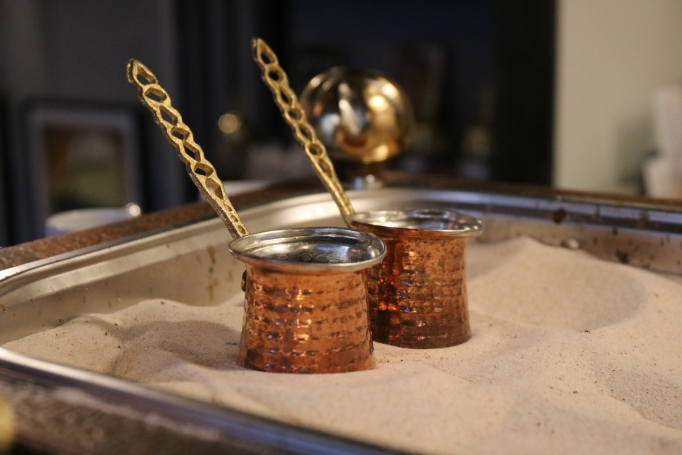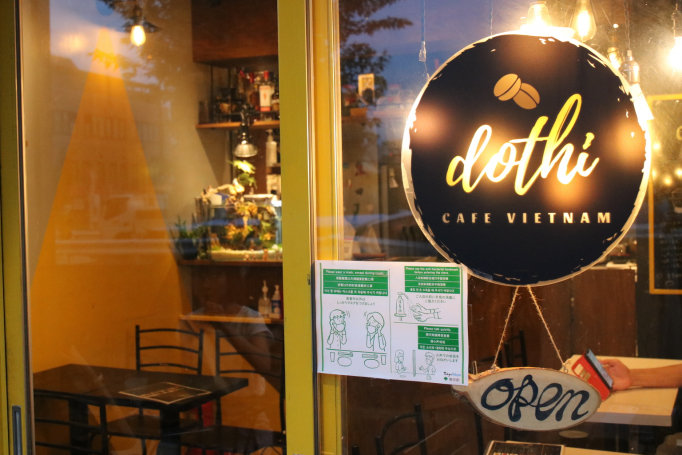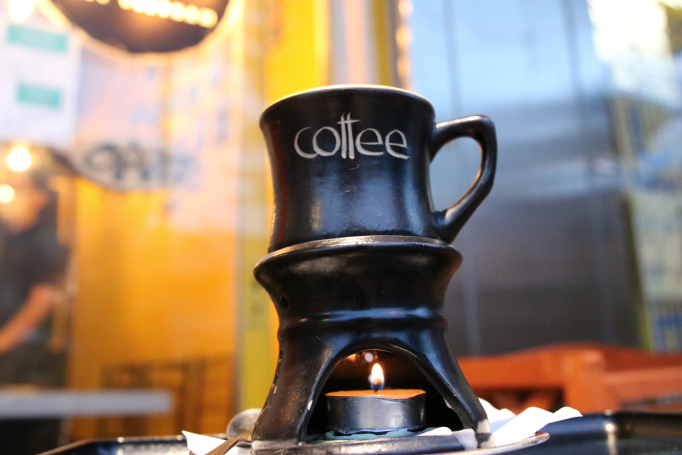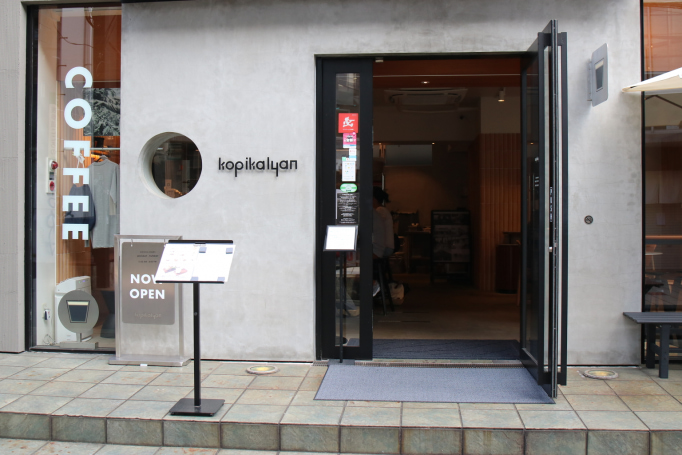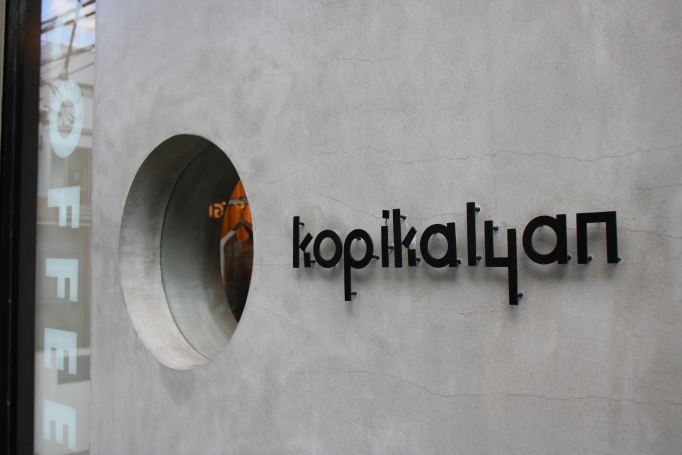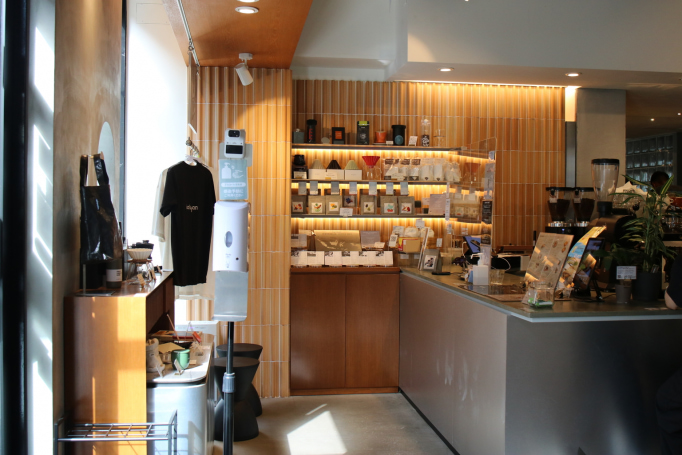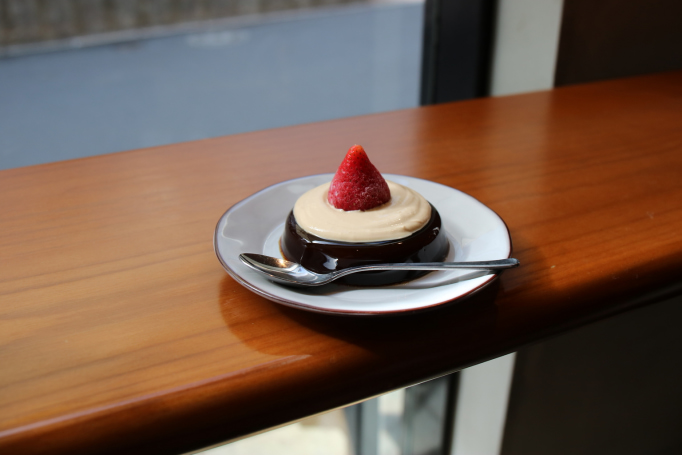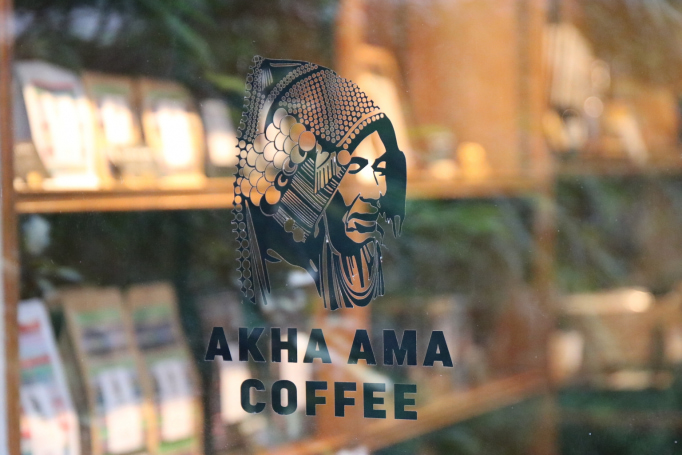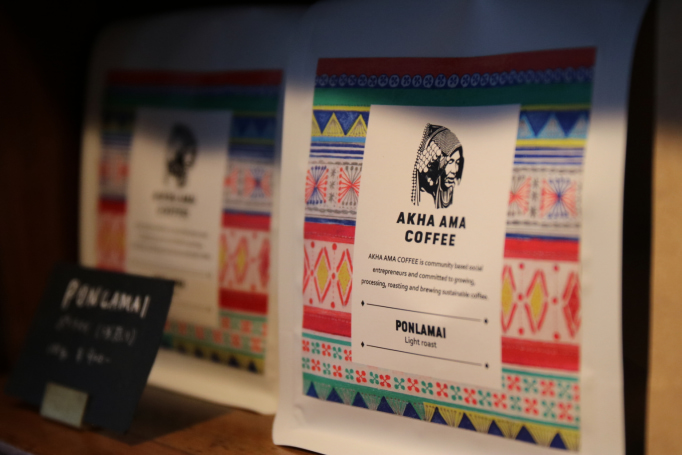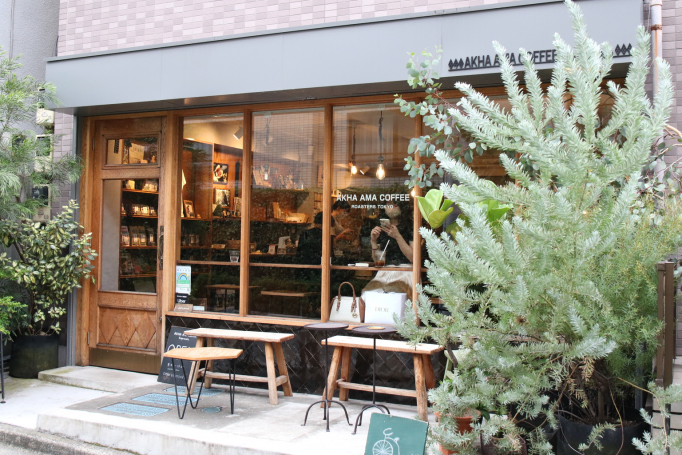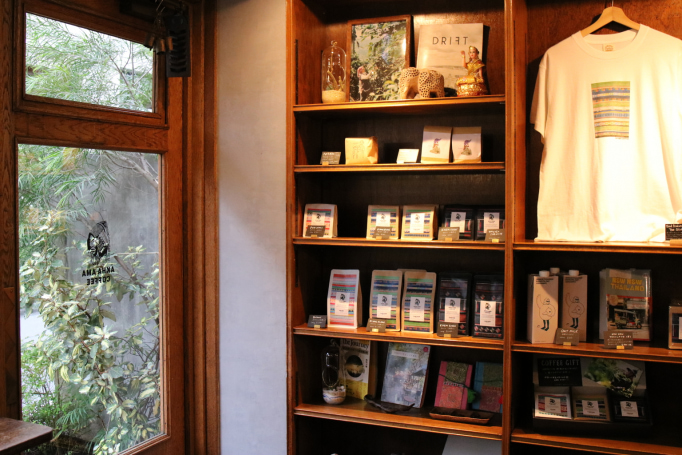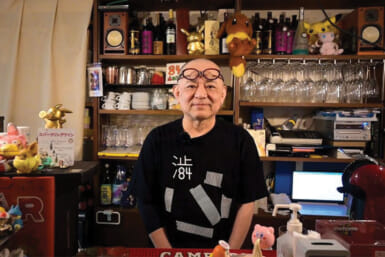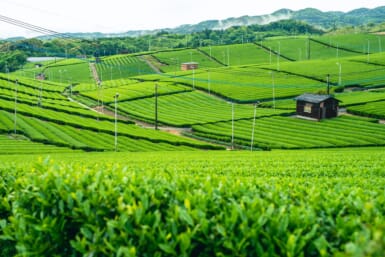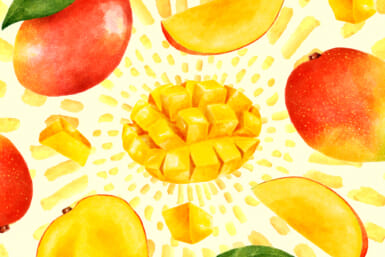From the kissaten style pour-over to the third coffee wave of lovely lattes and energizing espressos, the Tokyo coffee scene keeps getting richer and ever more diverse. Japan is one of the world’s biggest coffee importers and consumers, and along with the coffee beans different coffee cultures have also trickled in. From Turkey to Taiwan, here are some different coffee beans and different coffee drink preparations.
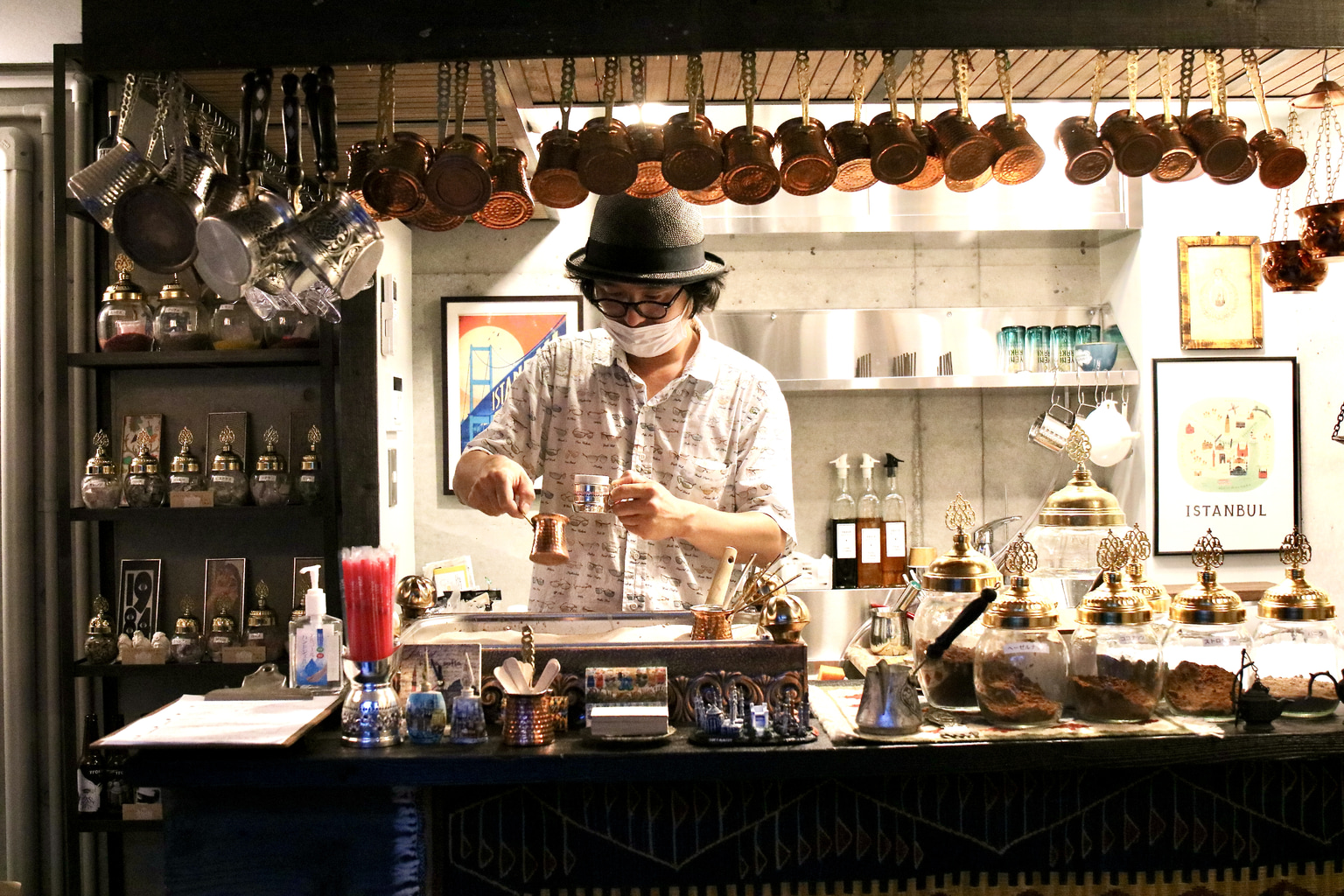
Turkish Coffee at Mosque Coffee
This coffee is rich and aromatic, a perfect treat. Predominantly known as Turkish, it is a shared culture with the countries that used to make up the vast Ottoman Empires, as well as the countries in the Middle East. Therefore, you can often find it in a number of ethnic restaurants in Tokyo. However, for a true coffee culture experience, it’s best to try it at a dedicated coffee place and Mosque Coffee is Tokyo’s best.
Not to be confused with the actual Turkish mosque Tokyo Camii in Yoyogi Uehara (which, by the way, is the best place to buy packs of ground Turkish coffee to make it at home), this coffee shop started as a mobile coffee truck in 2020 in Senrogai, Shimokitazawa. Since July 2022 it has moved into its own space near Shimokitazawa’s Reload.
The owner, Masanori Koyama, has a passion for Turkish coffee that has earned him the utmost respect and patronage from Turkish residents in Tokyo. He makes coffee the traditional Turkish way, by burying the pot in hot sand. He offers flavored Turkish coffee too, such as coconut and hazelnut, a trend that is just about starting in Turkey. Equally rare, you can try Turkish coffee latte here too. Koyama keeps up with trends with the help of his contacts in Turkey, but also makes his own. He has devised a way to make iced Turkish coffee, unheard of in Turkey.
Koyama has imported all of the unique furniture from Turkey, from the indispensable cezve pots (several dozen hanging above the counter) to the vintage table made out of an iron stew pot. He handpicked the cups and saucers on his trips to Istanbul too.
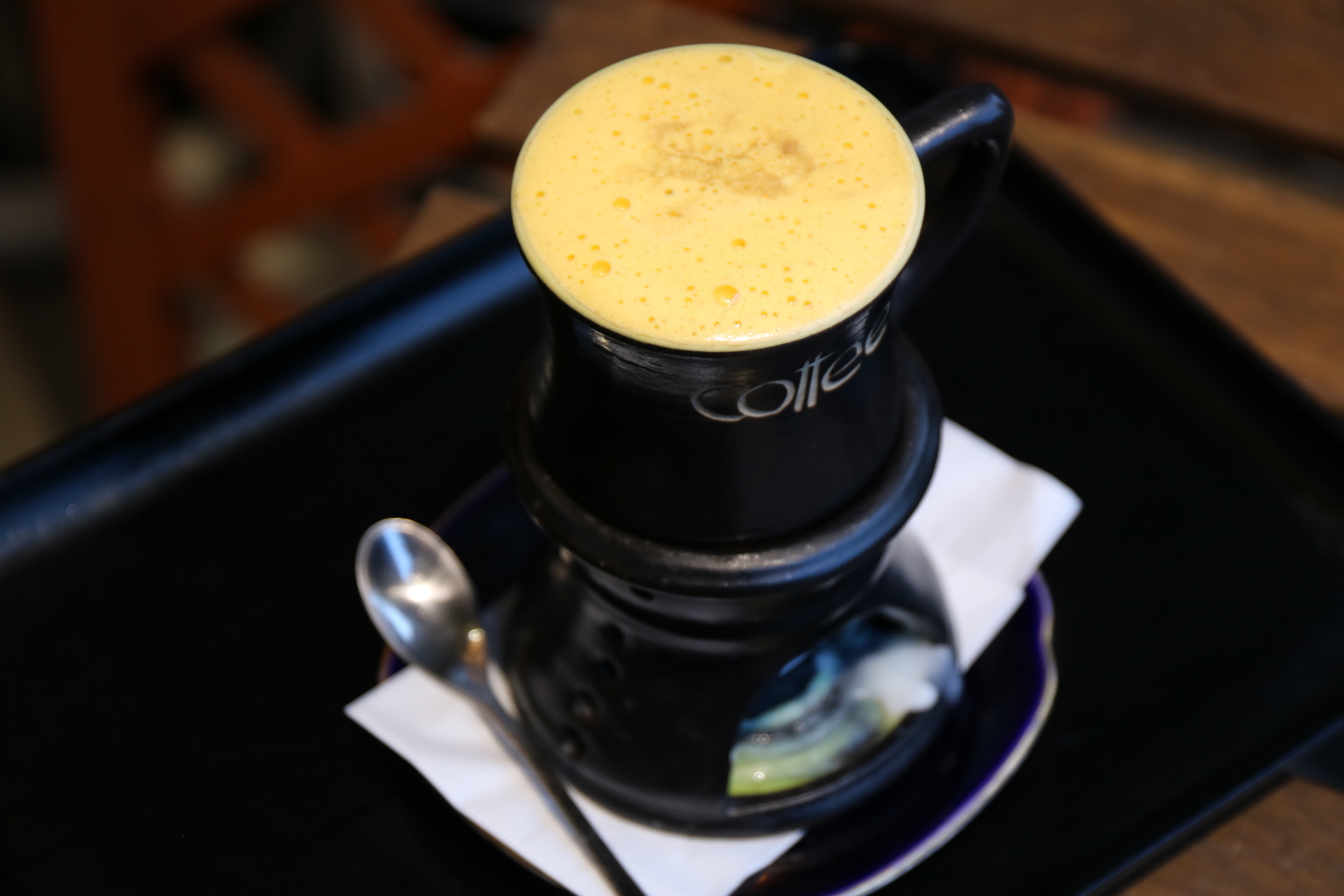
Vietnamese Coffee at Dothi
Vietnam is the world’s second-biggest coffee producer, predominantly the Robusta variety. Robusta is strong, dark and bold. Brewed the Vietnamese way it retains its rich body. This is because the Vietnamese drippers are metal so the coffee retains its oils. That dark nutty Robusta brew goes perfectly with condensed milk making the balanced mellowed-out Vietnamese-style iced coffee. So, it’s an iced latte with a lot of character and a punch of deliciousness. You can find Vietnamese iced coffee at most Vietnamese restaurants and Bahn-mi sandwich places in Tokyo.
Far rarer in Tokyo is Vietnamese egg coffee. This coffee is made with egg instead of milk, an invention driven by necessity in times when milk was scarce in Vietnam. The resulting drink is sweet and custardy and above all, very tasty. One of the few places that offers the drink is Dothi, a Vietnamese cafe in Takadanobaba. It’s served over a burning candle so it stays warm. Dothi also has iced Vietnamese coffee, as well as tasty food and desserts.
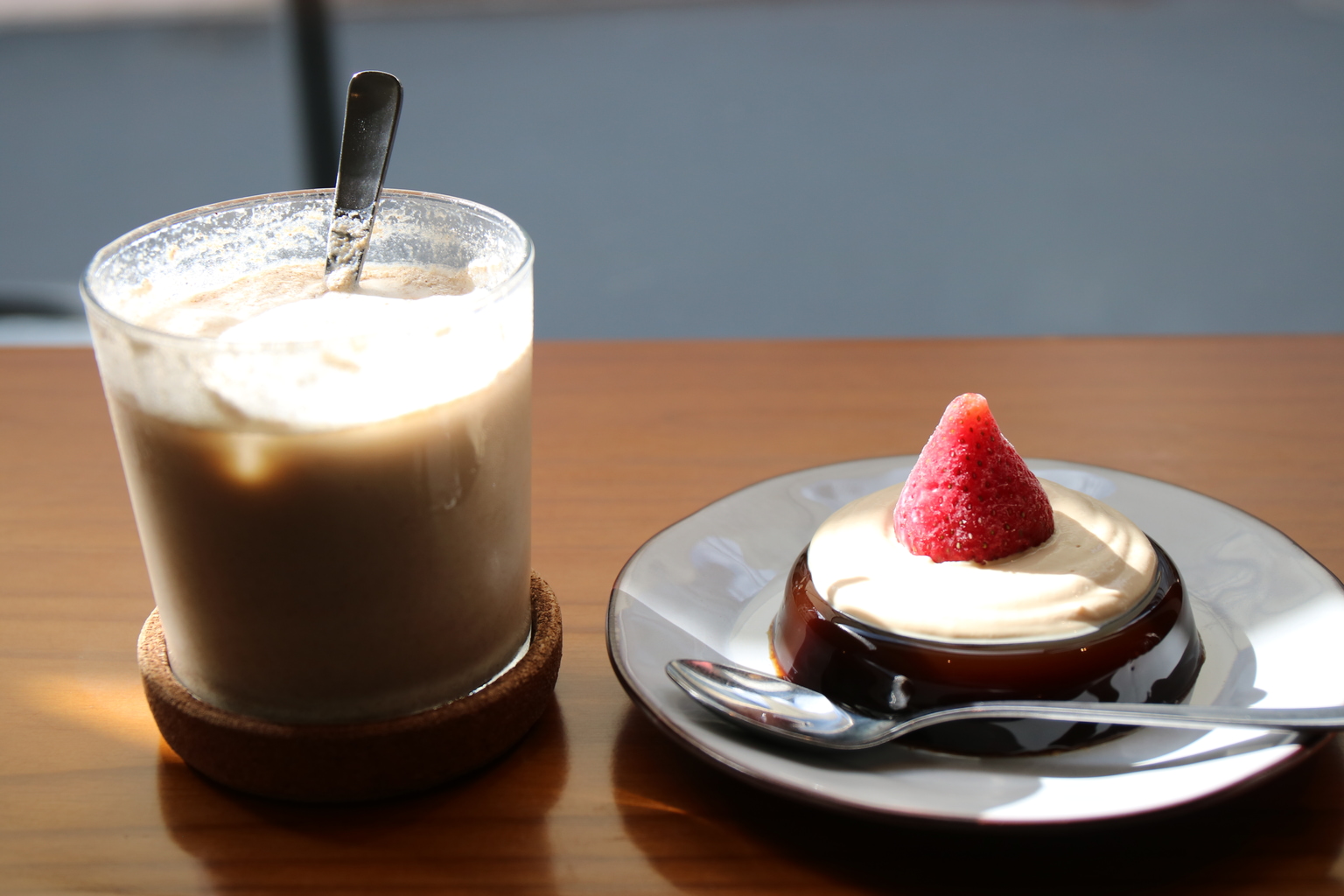
Indonesian Coffee at Kopikalyan
Chances are you’ve had Indonesian-grown coffee before in specialty coffee shops. Indonesia is a big coffee producer, but surprisingly there’s only one dedicated Indonesian coffee shop in Tokyo. Kopikalyan is a stylish Harajuku shop that is dedicated to only Indonesian coffee beans. They brew all the classic coffee drinks — espresso, latte, drip, cold brew — and also have rarer Indonesian drinks on the menu. There’s palm sugar latte, which is sweeter and earthier. There’s also Beras Kencur latte made with an Indonesian type of ginger for a drink with a kick.
On top of all that, Kopikalyan is known for its beautiful coffee jelly with palm sugar cream topping and pandan cake. The welcoming space has free Wi-Fi, outdoor seats and the occasional exhibition inside. If you like the beans there’s a whole wall lined with bags for sale, alongside merchandise.
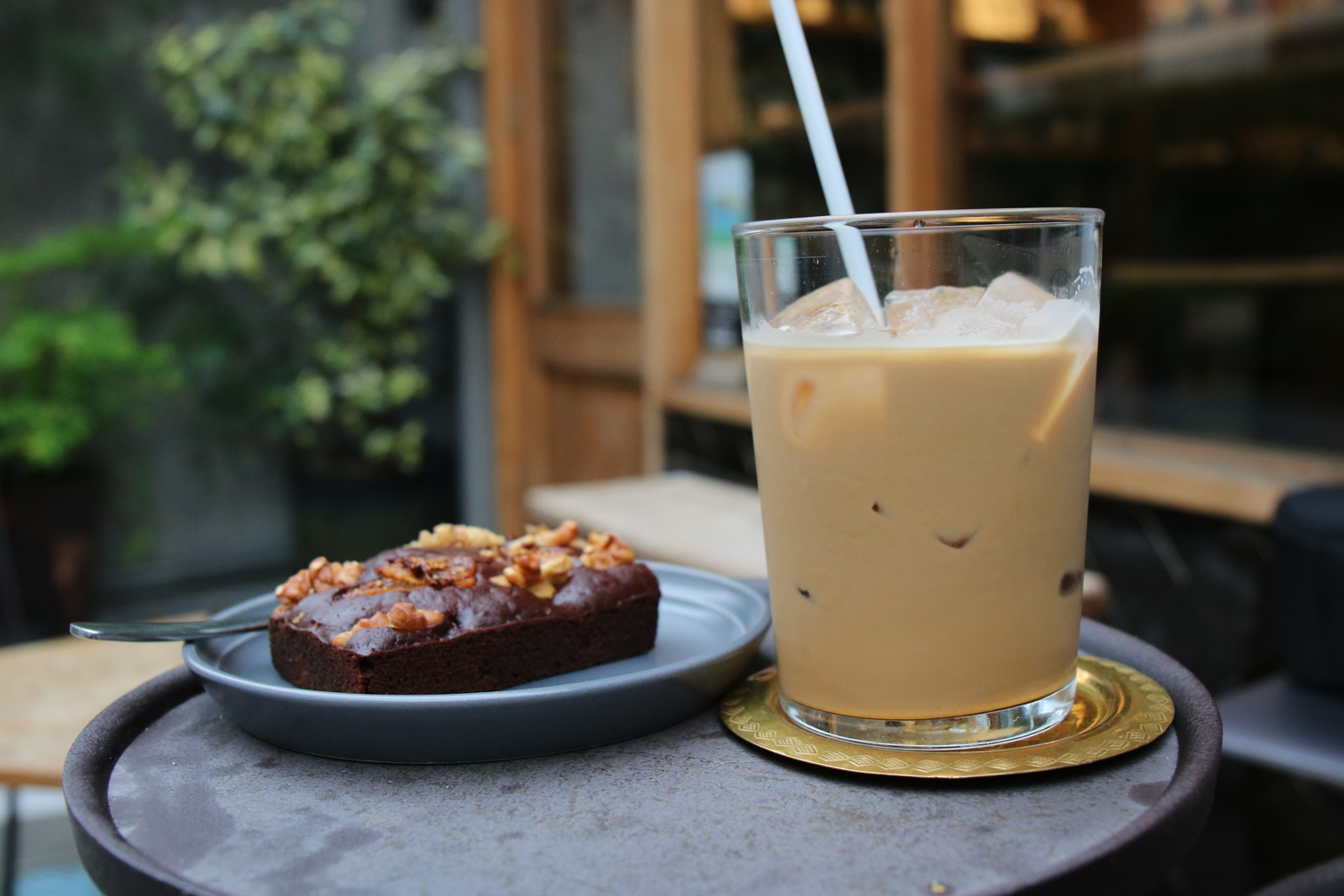
Thai Coffee at Akha Ama Coffee
Tasty, sustainable, organic coffee and welcoming space, Akha Ama Coffee is pure perfection. The only Thai coffee shop in Tokyo, Akha Ama has a special connection with a community in the Thai mountains. All the beans come from a small farm in the north of Thailand, near the Myanmar border. The coffee is grown by the Akha tribe, who originally came to Thailand as refugees. Akha Ama is the Tokyo branch of the company owned by Li, who is the first university graduate of the village. His mother grew coffee to help raise him and send him to school. Now they’re bringing jobs and prosperity to the village together. The “Ama” in Akha Ama means “mother” and the logo drawing is based on Li’s mother.
Akha Ama Coffee is a stylish welcoming space in a quiet backstreet in Kagurazaka. The staff will happily explain all about the coffee and its origin. You can buy coffee beans and t-shirts with traditional Akhma designs. The coffee itself is expertly made, whether it’s a classic espresso, macchiato, latte or a carefully made pour-over. For a Thai coffee culture sip, try the Thai iced latte made with sweet cream or the cardamom latte. Depending on the season, there’s also Manne Mana, a foamed double espresso with orange peel. The desserts are exquisite, with the carrot cake and the vegan fig and walnut brownie being big favorites.
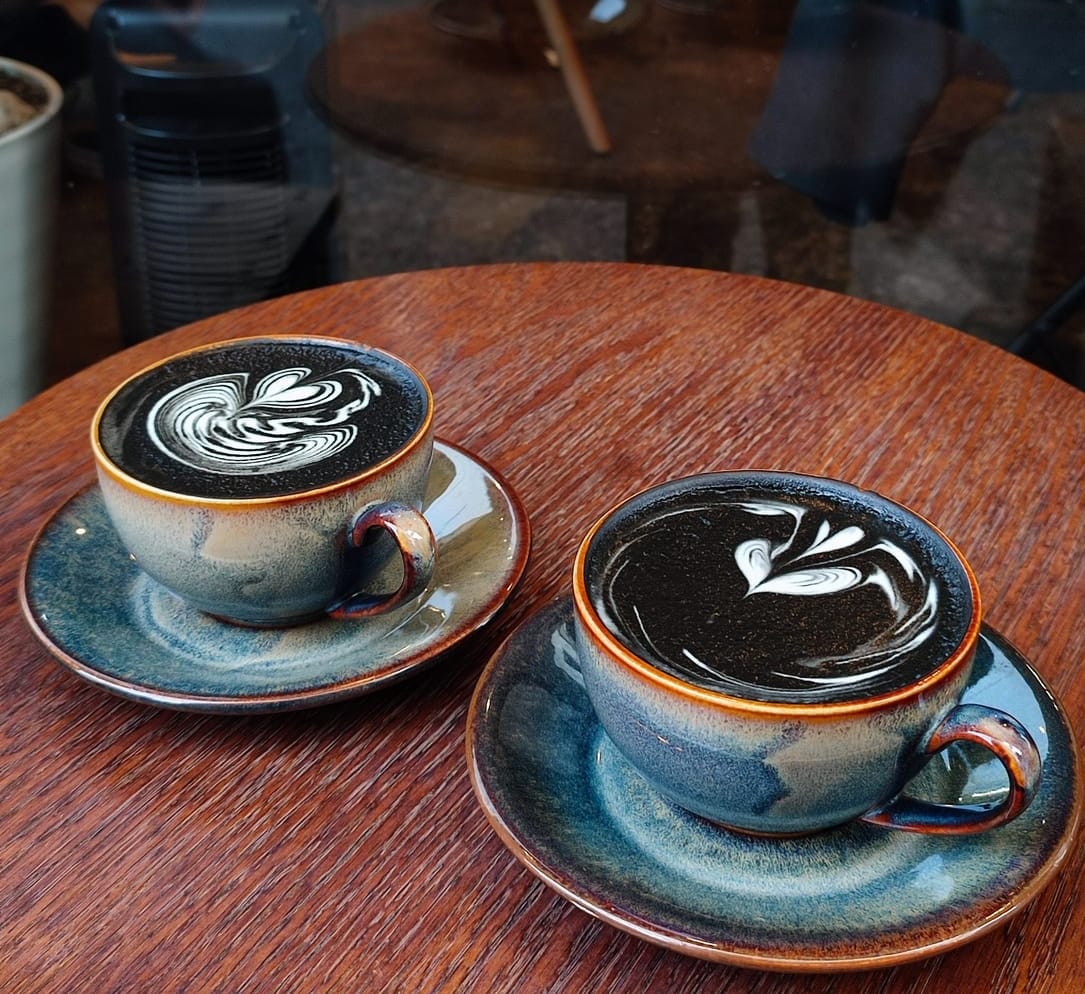
Taiwanese Coffee at Liwei Coffee Stand
Liwei Coffee Stand is a marriage of the tastes of Taiwan and Japan building upon a western coffee culture base. It’s run by married couple Liwei Hsuan and Haruko Kamimura who both love coffee and each other’s home country. So, they incorporate a bit of both in their shop. The coffee cups and plates are a mix of Arita ware and works of Taiwanese artists. The classic kissaten pudding is soaked in Taiwanese oolong tea syrup. They keep finding ways to intertwine cultures and tastes.
All beans are roasted in-house as both owners are coffee professionals. Hsuan is a latte art champion, while Kamimura honed her skills in some of Tokyo’s best specialty coffee shops. Liwei Coffee Stand offers excellent coffee in a stylish space in Takadanobaba. One of the signature drinks is a black latte made with bamboo charcoal.
You can buy Liwei’s coffee beans in-store or online, alongside unique merchandise and coffee equipment.
Photos by Zoria Petkoska

